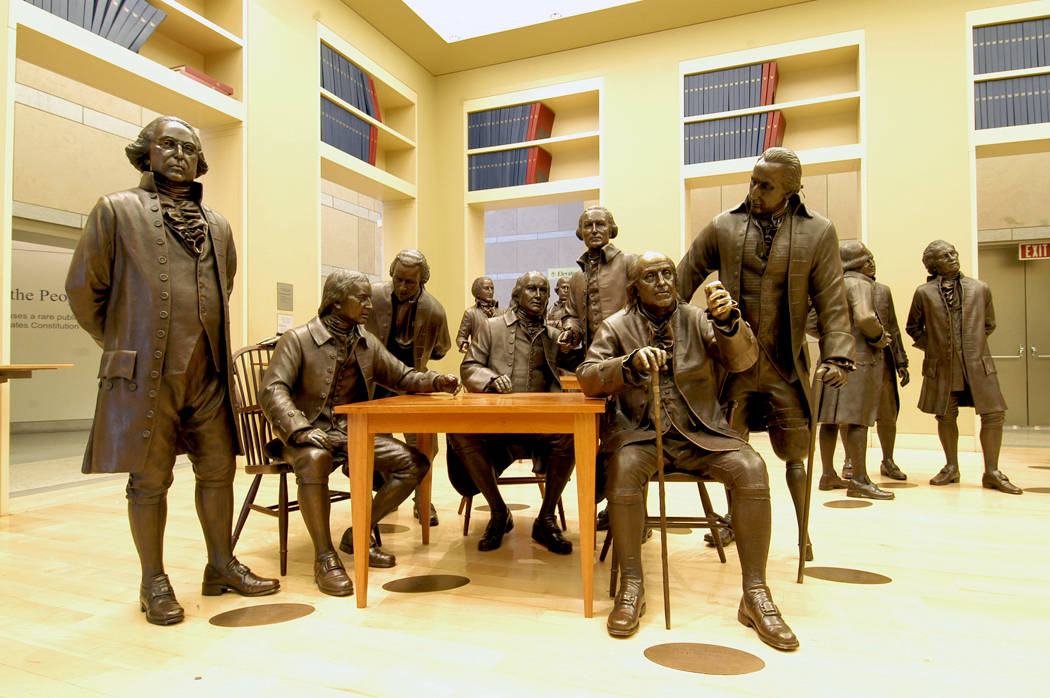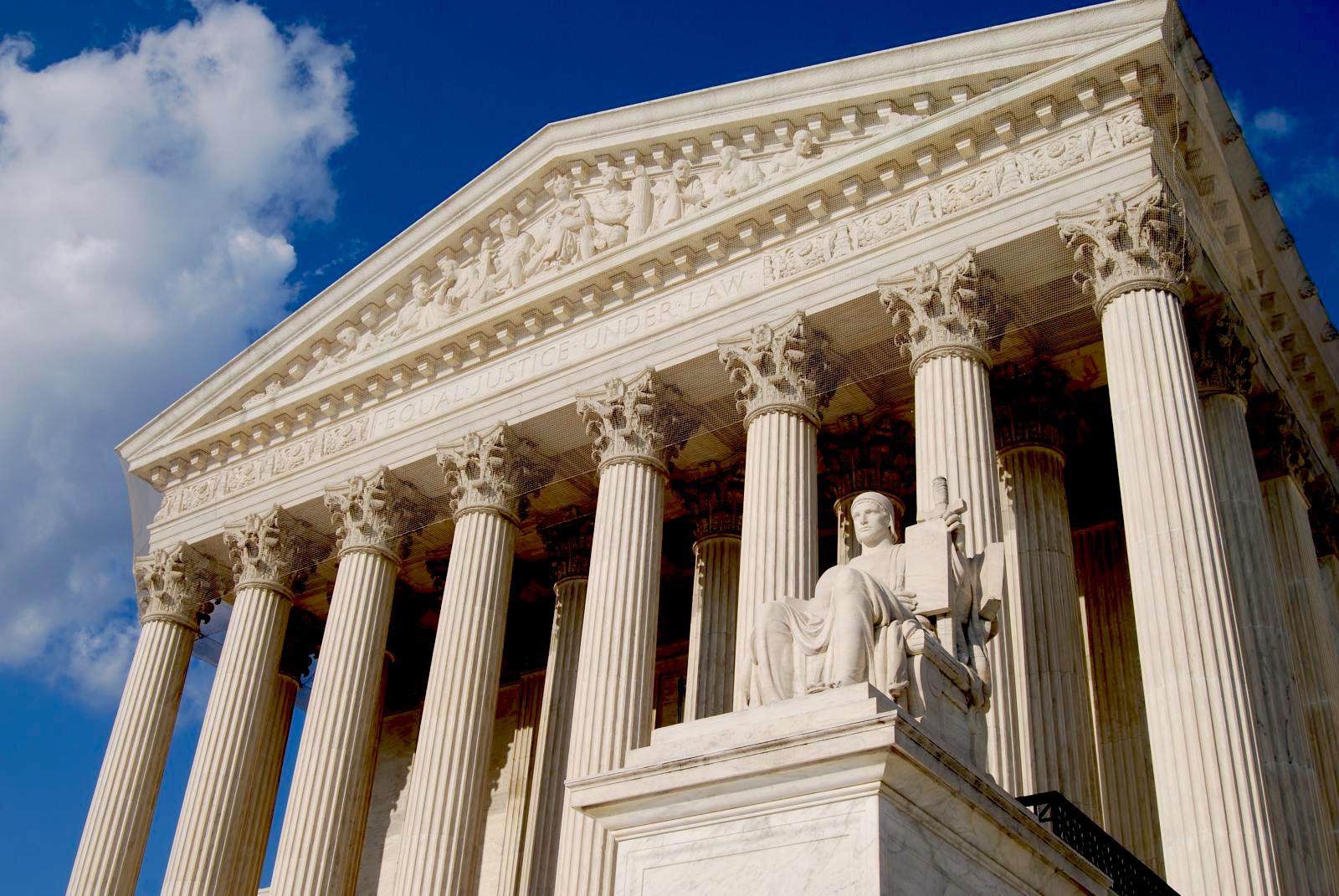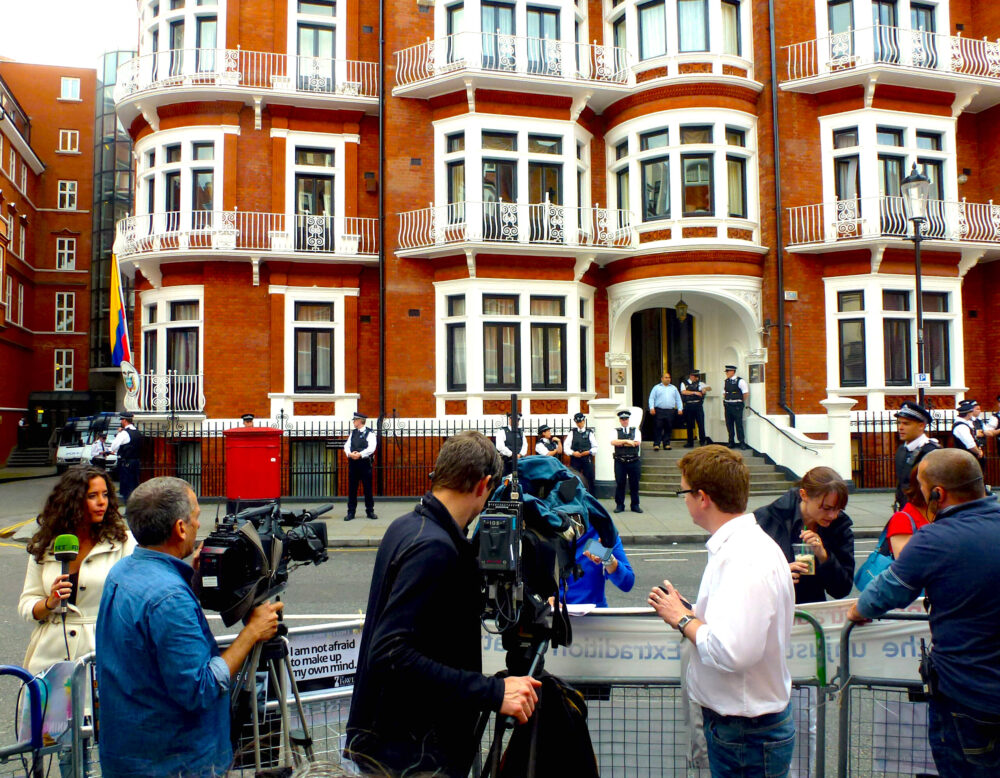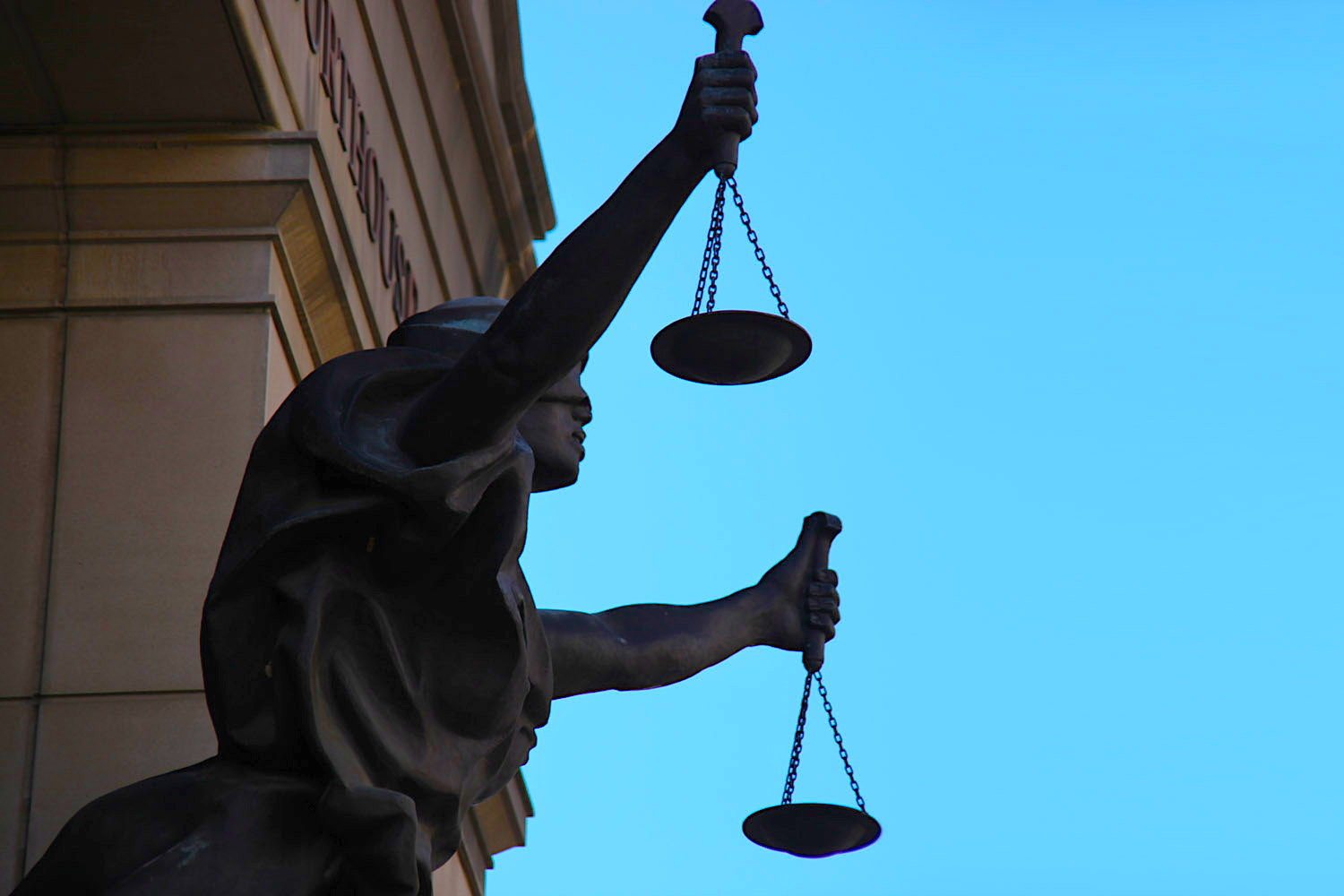The Espionage Act, as it is applied to the WikiLeaks publisher or any other journalist, also violates basic norms of due process, argues Bruce Afran.
By Bruce Afran
Special to Consortium News
 Last week marked four years of WikiLeaks publisher Julian Assange being held at Britain’s Belmarsh Prison while he awaits the outcome of his fight to block extradition to the United States.
Last week marked four years of WikiLeaks publisher Julian Assange being held at Britain’s Belmarsh Prison while he awaits the outcome of his fight to block extradition to the United States.
While the U.S. government is also charging Assange with conspiracy to commit computer intrusion, the core of its case is that Assange violated the 1917 Espionage Act by “possessing” and releasing “defense” material that caused “injury” to the United States or gave “advantage” to other nations, a boundless and limitless standard that can turn virtually any journalist or blogger into a criminal defendant.
No other direction, definition or limitation appears in this law that is now being applied to Assange.
As the government uses it against Assange, the Espionage Act would criminalize any media organization that receives or publishes “defense information” that embarrasses the government. This unlimited grasp of the Espionage Act is awe-inspiring in its capacity to criminalize journalistic endeavors.
Faced with such limitless horizon for prosecution, it would be impossible for any journalist or internet publication to know when their writing will lead to prosecution, a legal posture that will chill or destroy virtually all sensitive journalism.
Assange is being prosecuted, at least in part, as retaliation for speech. The government charges that WikiLeaks published U.S. “rules of engagement” in Iraq but WikiLeaks says it released these only after the U.S. defended the “Collateral Murder” video by claiming the killings were within the laws of war and the rules of engagement.
All this was of intense public interest and well within the bounds of journalism. To use the undefined contours of the Espionage Act to prosecute Assange in this way certainly smacks of retaliation for protected First Amendment activity.
The Espionage Act’s unconstrained language allows precisely what it has been used historically to achieve: the prosecution of dissidents for speech.
The US Constitution & Assange

Julian Assange at the “New Media Days 09” in Copenhagen, November 2009. (New Media Days / Peter Erichsen, CC BY-SA 2.0, Wikimedia Commons)
Assange’s case raises troubling questions about whether the Espionage Act breaches both the First and Fifth Amendments of the U.S. Constitution as it is applied to Assange.
An argument can be made that when Assange’s lawyers file a motion to dismiss the indictment the case should be thrown out on both grounds by District Judge Claude M. Hilton, who has been assigned Assange’s case in the Eastern District of Virginia.
In the most open-ended terms, the Espionage Act says any “person” with “unauthorized possession” of “information relating to the national defense…” that “could be used to the injury of the United States or to the advantage of any foreign nation…” is guilty of a crime.
All that is required to prosecute is that the defendant possesses defense information without authorization and/or “communicated, delivered or transmitted” such information to any other person — the very work of daily journalism.
But what does the Espionage Act mean by “unauthorized possession?” To any journalist the First Amendment itself is authority to possess and to publish.
What serious member of the press would not feel “authorized” under the First Amendment to publish defense information such as the “Collateral Murder” video as evidence of American war crimes? Nevertheless, they could face prosecution, as Assange does, under the Espionage Act.
In other words, it can be argued that the First Amendment, which prohibits the government from making any law “abridging the freedom of speech, or of the press” authorized Assange to possess and communicate the information leaked to him by Army intelligence analyst Chelsea Manning.

Chelsea Manning in Union Square Park in New York, May 2021. (Chelsea E. Manning, CC BY-SA 4.0, Wikimedia Commons)
The Espionage Act unconstitutionally criminalizes that routine of journalism. It ignores that the First Amendment by itself carves out an exception for a journalist possessing and informing the public about state secrets that reveal government crimes and corruption.
The phrase “relating to the national defense” is also so broad that publication of any government document that exposes military abuses could lead to prosecution. Nor does any clearer meaning attach to “injury to the United States” or “advantage of any foreign nation,” standards that could lead to conviction for publication of any government document touching on military or foreign policy.
Assange’s indictment should be quashed on the ground that the Espionage Act’s breathtaking overreach is an existential threat to First Amendment freedoms. For U.S. courts to do otherwise is to undermine due process and impose a vast threat to the First Amendment’s guarantees of a free press.
The Fifth Amendment

Bronze figures of some of the signers of the U.S. Constitution, at the National Constitution Center, Philadelphia. (Elliot Schwartz, CC BY-SA 3.0, Wikimedia Commons)
The Fifth Amendment says that no one shall “be deprived of life, liberty, or property, without due process of law.” But because of its unlimited sweep, there is virtually no defense to a violation of the Espionage Act, including a public interest defense.
One would think the Espionage Act applies to spying for a foreign power, the logical meaning of “espionage” but, in fact, the statute breezily punishes disclosure of any “information” that can cause “injury” to the U.S. or gives an “advantage” to a foreign nation.
No other direction, definition or limitation appears in this law that is now being applied to Julian Assange.
None of this meets even minimal standards of constitutional notice and due process as the Fifth Amendment has been interpreted.
The Espionage Act violates Fifth Amendment norms of fair play and notice for criminal prosecution. While the Supreme Court has never weighed in on the question, it is almost certainly unconstitutional when applied to journalists or internet publications such as Assange and WikiLeaks.
In the strict constitutional world that governs America’s criminal courts, Congress must give reasonable and intelligible “notice” so that the ordinary person will understand just what conduct will violate the law.
The Espionage Act is so broad as to violate the Fifth Amendment’s requirement that a statute give this actual notice as to what acts comprise a criminal offense. It is up to Congress to amend the Act to make this clear.
Viewed in this way, the Espionage Act applied to Assange or any other journalist violates basic norms of due process, an argument Assange’s British legal team should make to the British courts that will have the final say on his extradition.
A Question of Jurisdiction

U.S. Supreme Court Building. (Christina B Castro, CC BY-NC 2.0)
Equally important is whether the U.S. can ever prosecute a foreign journalist such as Assange who committed no act on U.S. soil; is not a U.S. citizen and has never lived in the U.S.
As the Supreme Court made clear in a case concerning AT&T’s attempt to enforce patents against Microsoft in foreign countries, “It is a basic premise of our legal system that, in general, United States law governs domestically but does not rule the world.”
In yet another case, the Supreme Court has long noted the presumption against extra-territorial reach of American laws unless there is “clearly expressed congressional intent” and has held that Congress must “unmistakably instruct” it has intended a law to reach people outside of the country.
In other words, the government can reach across the seas to bring a foreign defendant to U.S. courts but only if it gives “unmistakable” notice in the law that it plans to do so. Under these principles the U.S. does not and cannot have jurisdiction over Julian Assange.
In contrast to these long-standing principles, nothing in the Espionage Act gives notice that Congress “clearly” and “unmistakably” intended the law to have extra-territorial reach.
When the section on the Espionage Act’s jurisdiction being restricted to U.S. territory and the high seas was repealed in 1961, it was not replaced with clear language extending jurisdiction globally.
Instead, the Espionage Act speaks only to punishment for taking documents from U.S. government facilities. But it continues no provision that receiving emails or texts in another country from a U.S. government employee will turn a foreign journalist, blogger or platform owner into a criminal defendant.
Put simply, the Espionage Act contains no provision that the U.S. can prosecute foreign journalists simply because they receive government documents from a U.S. source.
1st Amendment Authorized Assange’s Possession of Classified Data | Bruce Afran for @Consortiumnews https://t.co/3dLIdewUYN
— Stella Assange #FreeAssangeNOW (@Stella_Assange) April 20, 2023
In the scenario posed by the indictment against Assange, any foreign journalist can be extradited to the United States, thrown into solitary confinement in a federal prison while they await trial and hauled into an American courtroom for no greater reason than that they asked for and received documents from a U.S. government employee, all while remaining abroad and without notice that the U.S. government would prosecute journalists for actions that may be lawful in their countries.
As with Assange, foreign journalists could find themselves criminal defendants in the U.S. having committed no offense anywhere else.
No Such Nexus
In cases where Congress has created extra-territorial jurisdiction it always includes in the law a specific geographic tie or “nexus” to the United States.
For example, the Foreign Corrupt Practices Act makes it a crime under U.S. law for a foreign company to bribe a foreign official where the bribe goes through a U.S. bank or the company’s stock is traded in the U.S. It is only by including such geographic “nexus” that Congress can make U.S. bribery laws reach across the seas.
Unlike other statutes, the Espionage Act contains no such nexus as to journalists who are nationals of other states and do their work entirely abroad, such as Assange.
In fact, Congress gave no notice that foreign journalists can be prosecuted under the Espionage Act for a very good reason: to do so would outrage America’s allies and other nations.
Using the government’s reasoning, a journalist abroad who calls a U.S. government source and asks for confidential information or receives emails or texts with “defense information” can be forcibly extradited to the U.S., torn away from their families and thrown into a U.S. prison without having necessarily violated any known law in their own countries.
To use the Espionage Act in this way will not only create international chaos but will further chill the very willingness of journalists to do their jobs: to uncover and expose governmental crime and misconduct, the mission of the working reporter.
Assange presumably placed WikiLeaks in Iceland precisely because at the time, in 2010, Iceland said it would be a legal safe haven for journalists. He also would have seen that the Espionage Act contained no provision giving the U.S. government extraterritorial jurisdiction over foreign journalists.
Having been led by Congress’s silence to believe the law has no extraterritorial reach, it would now breach fundamental notions of fairness and due process to extradite Assange from the U.K. and haul him into an American court and U.S. prison while he awaits trial.
Spying & a Planned Assassination

Ecuadorian embassy in London where Julian Assange took asylum. (nick.hider, CC BY-SA 2.0, Wikimedia Commons)
Like Pentagon Papers whistleblower Daniel Ellsberg 40 years earlier, Assange has been the subject of illegal surveillance, according to testimony in Madrid against the founder of the Spanish company UC Global. The firm was hired by the C.I.A. to spy 24/7 on Assange inside the embassy, eventually in real time, according to the testimony.
The C.I.A. also planned to kidnap or assassinate Assange in the embassy, witnesses in the case said. Their testimony was read at Assange’s extradition hearing in London in September 2020. The C.I.A. plan was later confirmed by former U.S. officials in a Yahoo! News report in September 2021.
There is precedent for throwing out a case when evidence emerges of eavesdropping on privileged conversations between a client and a lawyer, as happened with Assange and his attorneys.
In 1973, facing an almost identical scenario, U.S. District Judge William Byrne dismissed all charges against Ellsberg and fellow whistleblower Anthony Russo because of the government’s admission of illegal surveillance, wiretapping and break-in of Ellsberg’s psychiatrist’s office.
Calling it an “an unprecedented series of actions” that “offend “a sense of justice,” Byrne said he was forced to dismiss all charges because the “conduct of the government has placed the case in such a posture that it precludes the fair dispassionate resolution of these issues by a jury.”
1st Amendment Authorized Assange’s Possession of Classified Data | via @Consortiumnewshttps://t.co/xAsfyLTJHr
— WikiLeaks (@wikileaks) April 21, 2023
Placing Assange’s lawyers and other visitors under surveillance at a time when the government was considering criminal charges against Assange (or had already indicted him) is equally a breach of due process and offensive to a sense of justice.
That such surveillance took place abroad hardly mitigates the harm. As long as the government believed it could prosecute Assange, it was required to adhere to basic due process and a sense of fundamental fairness.
Whether Assange broke U.S. law is one thing, but the disregard of due process is never within the power of the government and should require dismissal of the case against Assange as it did Ellsberg and Russo four decades ago.
Is Assange a Fugitive?
Fighting extradition in the U.K. is far from Assange’s only legal option.
While he is still imprisoned in Britain, Assange can move to quash the indictment in federal court in Alexandria, Virginia, where his indictment was filed. Grounds for such a motion certainly exist: the Espionage Act as applied to journalists, bloggers and platform hosts is unconstitutional — its broad brush language criminalizes journalism that is protected under the First Amendment and is vague and overboard, a blunt weapon to stifle dissent.
One may ask, “Isn’t Julian Assange a fugitive and not entitled to ask for judicial relief until he appears in court?” While this may seem logical, it is a misunderstanding of what is known as the “disentitled fugitive doctrine” that bars a defendant who flees the U.S. to avoid prosecution from asking the court for any favorable ruling until they return.
Assange is not truly a fugitive as our courts have traditionally understood the term. Assange did not flee the United States, never lived here and was not in the U.S. when he communicated with Manning and published on WikiLeaks, which was then based in Iceland.
As one court has put it, a defendant is a “disentitled fugitive” when he “absented himself from the jurisdiction with the intent to avoid prosecution.” (United States v. Nabepanha, 200 F.R.D. 480. S.D. Fla., 2001)
The Supreme Court defines a fugitive as one who “has left its jurisdiction and is found within the territory of another.” (Streep v. United States, 160 U.S. 128, 16 S. Ct. 244, 1895.)
Assange hardly qualifies as a fugitive under this standard since he never fled U.S. jurisdiction. A foreign national is not a fugitive simply because they did not come to the U.S. after being indicted.
Court decisions concerning the fugitive disentitlement doctrine almost universally concern people who lived in the U.S. when their alleged offenses were committed and then left, failing to return after learning of the indictment.
This does not apply to Assange who should be able now, while he is still in the U.K., to ask the U.S. federal court to quash his indictment as unconstitutional.
Not only is this his right but it is supremely logical. Among Assange’s most powerful grounds for quashing the indictment is that the Espionage Act does not “clearly” and “expressly” give Congress extraterritorial jurisdiction. For this reason alone it is entirely reasonable for Assange to seek dismissal while remaining outside of the country.
It would be a miscarriage if Assange is required to appear in the U.S. and face months of punishing solitary confinement in federal prison just to argue that the law does not have exterritorial application and he should never have been brought to the U.S. in the first place.
Assange should be free to make such an argument now, while remaining outside of the United States and safe from the tender mercies of pre-trial confinement under the Espionage Act.
– Joe Lauria contributed to this report.
Bruce Afran is a constitutional and public interest lawyer who also teaches first amendment law at Rutgers Law School. Among other cases, he obtained the release last year of former Black Panther Sundiata Acoli, one of the nation’s longest-serving prisoners after 48 years incarceration. Mr Afran is based in Princeton, New Jersey.




What a sad nation you are, America. Lots of lies—and when will we find out who really murdered JFK? Was it YOU, America? Shouldn’t we find the TRUTH in that murder—-do we have to wait for even more decades to pass before we learn the truth of that killing?
The journalist Julian Assange broke no laws —but sadly America seems to break them . “We the People of the inited States, in order to form a more perfect union…” America, you make me sad and the more I learn, the more I see that We the People don’t seem to matter much at all. Power does corrupt absolutely, doesn’t it. : (
The boot lickers of the MSM share a large part of the blame here. In lock step they all sided with this most authoritarian stand by the intelligence community and gutless democratic party members.
Why? Because they are deathly afraid of the intelligence community and losing their enormously bloated paychecks. Enormously bloated paychecks they daily prostitute themselves and the use of their talents (?) for!
Shameless whores with little or no social values!
thanks CN
So….just who is an journalist?
Is it not just someone who shares information with another if one drills it down?
Does it matter how big the audience is?
If just a few reads a news column is that person not still a journalist?
Is the means it was published the determining factor?
My point is…am I in trouble for sharing what is a huge wide definition of what not be shared and I tend to believe they would love to expand that definition of a journalist to just those like me who tend to post stuff they might not like?
If they ignore the 1A for him surely little ol me should expect they won’t decide I’m naughty too?
Just because I’m paranoid…..
they want THE FEAR. look how they played the domestic news cycle during “the war on terriers”. 20 years that war ran. then, knowing all too well they were gonna pivot to ____ (ukraine/china/what have u), THEY DROPPED IT COLD! It was all a “news op”. Constant propaganda on tv of “dirty brown faces”. Then they DROP IT COLD. done. it’s all a “MATRIX”. They want your FEAR. propaganda is 90% of their war effort.
Finally, an article I have longed to read which provided some hope against the 5 state manhunt to murder Julian Assange. Thanking you for sharing this wisdom and hope is putting it mildly! #FreeAssange
Remember, the United States Constitution was rejected by the American people. It needed 9 of the original 13 states to approve it, and it could only get 8. The Bill of Rights was added to the Constitution to get it approved. That is worth saying again, the Constitution was not approved without the Bill of Rights, and the American people required those amendments as a part of the deal that adopted the Constitution.
Without the Bill of Rights, the US Government in its current form does not exist.
If this is really a Rules Based Order, then the Bill of Rights is the foundation of the rules, because without agreeing to these 10 Amendments, none of the rest of the Rules exist.
BTW, my personal favorite is still the 9th ….
“The enumeration in the Constitution, of certain rights, shall not be construed to deny or disparage others retained by the people.”
The 1st Amendment was enacted because it is one’s patriotic duty to voice one’s disagreements with government policies. Voicing disagreement with the government is a feature, not a bug. All the current government efforts to suppress dissent, using con-artist excuses and reasoning, are crimes against Americans. They are further evidence that our government has been captured by enemies of the American people.
The 1st Amendment was designed to protect the people from a corrupted government. The so-called “Espionage Act” was designed to protect a corrupted government from the people. Specifically, it was designed to suppress dissent against entering WWI.
While an entirely logical legal argument in every respect, having watched the slow motion extra-legal persecution of Stephen Donziger by an American court, I suspect Mr. Assange would have a far likelier chance of benefitting from a fair trial in Russia.
Apparently “by claiming (that) killings (are) within the laws of war and the rules of engagement” when it applies to the U.S. and its North Atlantic Treaty Organization (NATO) allies, but does not apply to its arbitrarily designated enemies falling outside of this cabal, such as in the Ukraine debacle, but not when the U.S.’s long time nemesis, Russia – delusional Paranoia, is attempting to defend its existential interests against the unipolar American hegemon.
Humanity is literally at the edge of the precipice of total annihilation because of the U.S.’s brazenly deceitful intransigence.
And Julian Assange is illegitimately being scapegoated and made to pay the price for the American populaces blindspot; in its false ideas of its exceptionalism. (This term uses blind in the sense of covered or hidden from sight) – as in the unconstitutional, covert intentions of those ‘operatives’ running the ‘government’.
Note:
Dictionary.com
Does anyone really think the Julian Assange case is about Law and Justice?
It is about ENDING Freedom of Speech and Freedom of the Press.
The Capitalism Industrialist Military System has no interest in such things, except to end them.
And why would the Government of England do anything this system would not want them to do?
They are in the same system.
Well said, the UK government is nothing more than a puppet to the US and will always do the bidding of its master. The UK media are also very quiet on the subject and report only on what is allowed by HM Government. You are correct in stating that Freedom of Speech and Freedom of the Press are now under its greatest threat. The media will distract us all with other stories while piece by piece our freedoms are eroded.
Bruce Afran’s arguments for quashing the indictment seem very strong. Were these arguments for quashing used in fighting the extradition request?
I believe there are other arguments Marc for quashing this absurdity;
hxxps://www.kaine.senate.gov/press-releases/kaine-graham-introduce-bipartisan-bill-to-promote-international-press-freedom
And:
Protecting Press Freedoms Worldwide
MAY 17, 2010 AT 3:36 PM ET BY JESSE LEE
Summary:
President Obama signs the Daniel Pearl Freedom of Press Act into law.
[[nid:12236]]
“Today, President Obama signed the Daniel Pearl Freedom of the Press Act into law, a bill that reinforces the nation’s commitment to ensure freedom of the press, including bloggers, around the world. The President described the act as upholding our “core values” and sending a strong signal to the world about journalistic rights.”
This Press Act is apparently written into law. Surely this applies to Julian’s case.
Wikipedia:
This law requires the expansion of the U.S. Department of State’s annual Country Reports on Human Rights Practices to the U.S. Congress to include a description of the status of freedom of the press in each country included in the report.[3] This expansion includes the identification of countries where violations of freedom of the press have occurred and, in those countries where violations are particularly severe, whether the governments facilitate, participate in or condone such violations along with the specific actions they have taken to preserve the safety and independence of the media and ensure the prosecution of violators who attack or harm journalists.[3]
I guess one may check if U.S. Department of State’s annual Country Reports on Human Rights Practices ever mentioned Assange or Manning… Perhaps there are more substantial protections in the bill, but I doubt it.
Thanks Piotr. That’s where i fell flat. Not reading between the lines. But surely both Julian Assange and Chelsea Manning must come under “human rights” act.?
Whatever. We must do what we can within our capacity to support all truth tellers.
Apparently, the “Press Act” is just that—an act.
What about this – the most recent extradition treaty between the US and the UK was signed by both but only the UK ratified it. As the US did not does that not invalidate the treaty and cannot be instigated? It should but as this is an obvious flaw and shows how stupid the UK is, that won’t work.
Well right Otto. If any party has not ratified the treaty, then it is not valid. But i would like to think that Julian’s lawyers are cognizant of all machinations pertaining to his case. I’m sure they are. And we endeavour to mention any little cog in the wheel of justice which might be overlooked.
FREE JULIAN ASSANGE
FILE – Omali Yeshitela, chairman of the International People’s Democratic Uhuru Movement, St. Petersburg, addresses the recent killings of black males, and police on July 8, 2016, in Dallas.
Four Americans affiliated with a Black empowerment and political organization, including Yeshitela, have been charged along with three Russians with conspiring to covertly sow discord in U.S. society, spread Russian propaganda and interfere illegally in U.S. elections, according to an indictment unsealed Tuesday, April 18, 2023. (Scott Keeler/The Tampa Bay Times via AP, File)
“Russia’s foreign intelligence service allegedly weaponized our First Amendment rights — freedoms Russia denies to its own citizens — to divide Americans and interfere in elections in the United States,” said Assistant Attorney General Matthew Olsen of the Justice Department’s National Security Division.
“The department will not hesitate to expose and prosecute those who sow discord and corrupt U.S. elections …”
———
Black Lives Matter hitherto becomes “Russian propaganda”, sowing discord (a crime? sounds like criminalizing opinions just because they are different?) and such stuff “corrupts elections”. The creativity of American prosecutors has no bounds, surely logic, meaning of English words etc. can be broken, while 1st Amendment is something “weaponized by Russia”.
Bruce Afran is a voice of reason, and as such, in danger of becoming a relic of the past, “conservation status: threatened”.
The case against Julian Assange was never about the rule of law or even The Constitution of the United States and its attached Bill of Rights.
This man hunt was only about the public embarrassment of specific federal agencies (read: US State Department, CIA, FBI, DOJ, NSA, DHS, and Pentagon)for the dirty little secrets they kept, and punishing all those responsible by any means necessary.
Exactly. What do the US care about the rule of law? Even if the US Government dropped all the charges tomorrow, they have achieved their aim of keeping Assange locked up for years and years with all the prevarication. A punishment he is very unlikely to be compensated for.
“What do the US care about the rule of law?”
The rule of law is the cloak of the rule of man including “corporations” – ergo those whose agency requires obfuscation.
hxxps://strategic-culture.org/news/2023/04/18/austerity-war-dictatorship-charade-of-western-democracy-over-can-we-lose-those-chains/
refers.
Yes I agree completely with your post. The corrupt UK judicial system in helping to keep Assange in jail is despicable.
A British court in 1945 murdered Lord Haw Haw (William Joyce) in a trial for treason by falsifying the contention that he was British so could be hanged for treason when in fact he was an American so could not be a tried for that offence.
Right on and well said.